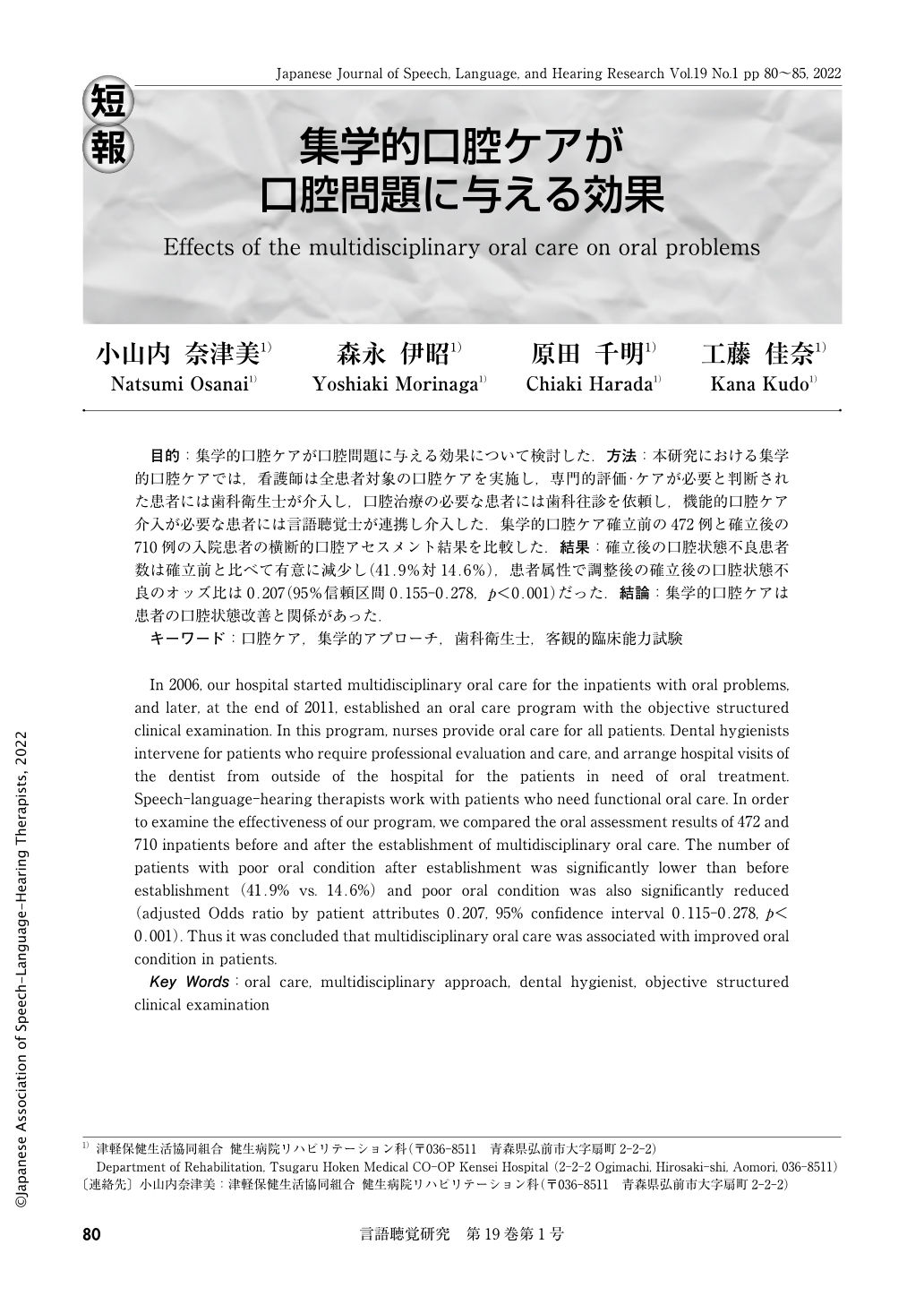Japanese
English
- 有料閲覧
- Abstract 文献概要
- 1ページ目 Look Inside
- 参考文献 Reference
目的:集学的口腔ケアが口腔問題に与える効果について検討した.方法:本研究における集学的口腔ケアでは,看護師は全患者対象の口腔ケアを実施し,専門的評価・ケアが必要と判断された患者には歯科衛生士が介入し,口腔治療の必要な患者には歯科往診を依頼し,機能的口腔ケア介入が必要な患者には言語聴覚士が連携し介入した.集学的口腔ケア確立前の472例と確立後の710例の入院患者の横断的口腔アセスメント結果を比較した.結果:確立後の口腔状態不良患者数は確立前と比べて有意に減少し(41.9%対14.6%),患者属性で調整後の確立後の口腔状態不良のオッズ比は0.207(95%信頼区間0.155-0.278,p<0.001)だった.結論:集学的口腔ケアは患者の口腔状態改善と関係があった.
In 2006, our hospital started multidisciplinary oral care for the inpatients with oral problems, and later, at the end of 2011, established an oral care program with the objective structured clinical examination. In this program, nurses provide oral care for all patients. Dental hygienists intervene for patients who require professional evaluation and care, and arrange hospital visits of the dentist from outside of the hospital for the patients in need of oral treatment. Speech-language-hearing therapists work with patients who need functional oral care. In order to examine the effectiveness of our program, we compared the oral assessment results of 472 and 710 inpatients before and after the establishment of multidisciplinary oral care. The number of patients with poor oral condition after establishment was significantly lower than before establishment (41.9% vs. 14.6%) and poor oral condition was also significantly reduced (adjusted Odds ratio by patient attributes 0.207, 95% confidence interval 0.115-0.278, p<0.001). Thus it was concluded that multidisciplinary oral care was associated with improved oral condition in patients.

Copyright © 2022, Japanese Association of Speech-Language-Hearing Therapists. All rights reserved.


